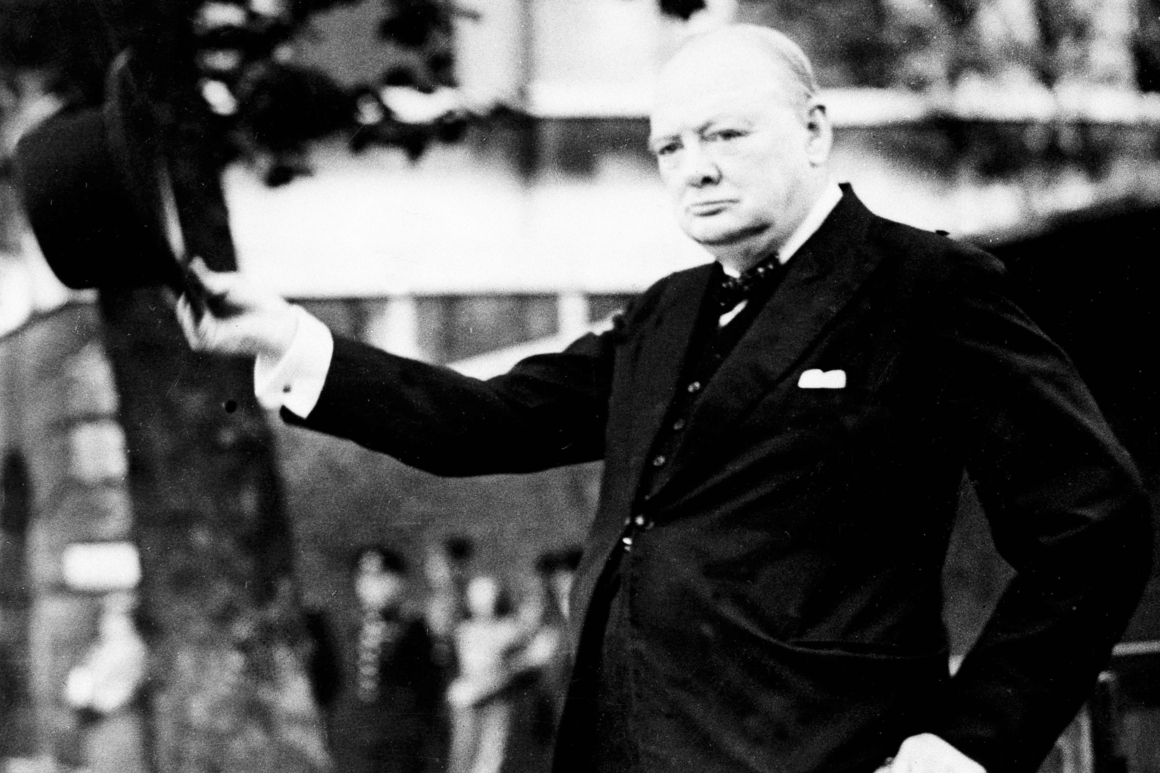
But in trying to divert attention, Johnson may be digging himself into yet another hole.
There’s no real threat to the great man’s effigy, of course. Despite all the sound and fury, no one has actually called for it to be removed. Doing so would be nothing short of political hari-kari. Churchill remains undoubtedly Britain’s best-known, most respected and arguably best-loved prime minister. For better or worse, he is our national hero and there is no capital to be gained in demanding his statue go.
Any suggestion that rogue #BlackLivesMatter protesters might try to do so anyway is likewise preposterous. Parliament Square is the most comprehensively guarded public space in Europe, and you would need heavy-duty machinery to make much more than a dent in the 4-meter-high solid bronze effigy.
But logic and reason have long departed these Brexit British Isles, and as the confected row has intensified in recent days an increasingly embattled Johnson chose to enter the fray.
In a series of blustering tweets and a lengthy op-ed in the pages of the Daily Telegraph, Britain’s part-time PM went into battle for his political hero against a non-existent foe.
Churchill’s statue, Boris tweeted on Friday, was a “permanent reminder of his achievement in saving this country — and the whole of Europe — from a fascist and racist tyranny.”
“We cannot try to edit or censor our past,” added the man who has purportedly banned the use of the word “Brexit” in Downing Street meetings.
These are trying times for Johnson. Still recovering from his bout of COVID-19 and ostensibly guiding the nation through its greatest crisis since 1945, he has come under increasing pressure in recent weeks. What better way to distract attention from it all than by throwing a dead bulldog on the table and getting everyone to look the other way?
The Churchill controversy certainly helps distract from the desperate unpleasantness of Brexit, the uptick in debates about racial injustice and Britain’s legacy of slavery, and the 42,000 people who have died, in part, due to the Johnson administration’s incompetence during the current pandemic.
But where Johnson no doubt hopes Churchill will be a rallying point for many Brits, he may find instead that Churchill’s seemingly unassailable place as Britain’s greatest hero is not as sure as it once was.
A debate about Churchill is long overdue. In a parliamentary career that spanned 63 years, he was arguably as responsible for as many good things as bad. One thing is beyond doubt: Despite what revisionists might say, he held views that were frequently unacceptable, even by the standards of his own age.
As uncomfortable as it may be for many to acknowledge, freedom-loving Churchill only really believed that freedom applied to white people and specifically white people with British passports. Time and again in his writing, the U.K.’s most famous politician demonstrated attitudes that sat at the very extreme of the contemporaneous British Imperial mindset.
Churchill was unequivocally against Indian independence and opposed any concessions to freedom that he believed would weaken the Empire. “I hate Indians,” he once wrote, “they are a beastly people with a beastly religion.”
He viewed Gandhi as a “malignant subversive fanatic” who “ought to be lain bound hand and foot at the gates of Delhi and then trampled on by an enormous elephant.”
Neither did the man who spoke out against the tyranny of Hitler and Axis totalitarianism see any paradox in his own nation’s invasion and occupation of other lands.
Throughout his life, Churchill defended the very worst excesses of the Empire — even at the cost of human life. He supported, for example, the setting up concentration camps in South Africa during the Boer War in the early 1900s that resulted in the deaths of thousands of innocent men, women and children.
In 1937, giving evidence to the Palestine Royal Commission, while talking about black Aboriginals he stated: “I do not admit that a wrong has been done to these people by the fact that a stronger race, a higher-grade race, a more worldly-wise race to put it that way, has come in and taken their place.“
As a war-time prime minister in 1943, Churchill was responsible for the catastrophic decision to divert food aid destined for Bengal to Britain, a choice that was to contribute to the deaths of 3 million people.
In his second term of office, as the Kikuyu rose up against British rule in Kenya, he held overall responsibility for the forced internment and brutal torture of 150,000 people in what has been called “Britain’s gulag.”
That disturbing episode, which saw extrajudicial executions, thousands of hangings, men forcibly castrated, women raped and many more die in internment camps, has been largely absent from narratives about Churchill — and indeed Britain’s recent colonial past.
And there’s a good reason for that. Most Britons still view the Empire through rose-tinted spectacles. They like their history to be uncomplicated and to believe that Britain and its leaders behaved in a manner beyond reproach. They are ignorant of the extent of the crimes of our colonial past and happier to bask in the reflected glory of their cigar-chomping hero than to delve into the events of his life.
Churchill was, of course, a complex figure whose political career spanned over half a century. But just because he won the war and has a prominent statue in Parliament Square does not mean he should be above scrutiny.
In seeking to divert from his own catastrophic leadership and bask in the radiant glow of the Churchill myth, Johnson may inadvertently have opened a can of political worms.
Source: politico.com
See more here: news365.stream






